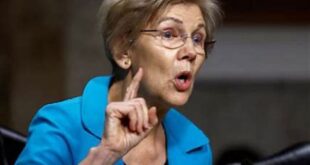In a recent essay, BitMEX co-founder Arthur Hayes shared his take on why the United States is unlikely to adopt Bitcoin as a reserve asset anytime soon — and it’s not just about the debt. According to Hayes, America’s hesitation stems in part from what he calls Bitcoin’s “bro culture” stigma, which he believes clashes with the country’s institutional image and political priorities.
A Cultural Misfit
Hayes argues that while nations like El Salvador or even corporations like MicroStrategy have embraced Bitcoin, the U.S. government views the cryptocurrency through a skeptical — and somewhat dismissive — lens. “Bitcoin is associated with tech bros, libertarians, and anarchists,” Hayes writes, suggesting that these cultural affiliations make the asset politically unpalatable in Washington circles.
The bro stigma, Hayes says, reduces Bitcoin to a symbol of anti-establishment rebellion — a position far from the cautious, consensus-driven ethos of the Federal Reserve and U.S. Treasury. In other words, it’s hard to imagine Janet Yellen HODLing.
Debt Dynamics
Beyond the culture clash, Hayes points to economic incentives. With the U.S. government running record deficits, issuing Treasury debt is both a necessity and a tool of control. Embracing Bitcoin, a deflationary and decentralized asset, would undermine the very foundation of that system.
“Why would a government voluntarily support a monetary network that limits its ability to print money?” Hayes asks rhetorically. From his perspective, the adoption of Bitcoin at the state level would only come after a systemic crisis — when the dollar’s supremacy is no longer a choice but a liability.
Global Shifts, Domestic Stalemates
While countries like China and Russia explore alternatives to the dollar for geopolitical reasons, Hayes doesn’t see the U.S. following suit. Bitcoin, he argues, might find its way into sovereign wealth portfolios elsewhere — but in America, it remains largely boxed in as a speculative asset, rather than a strategic one.
Still, Hayes leaves room for change. A generational shift in leadership, combined with a weakening dollar or a crisis of confidence in U.S. debt, could alter the equation. Until then, Bitcoin’s association with bros and rebels may continue to hold it back from acceptance in the halls of power.
 Business Sandesh Indian Newspaper | Articles | Opinion Pieces | Research Studies | Findings & News | Sandesh News
Business Sandesh Indian Newspaper | Articles | Opinion Pieces | Research Studies | Findings & News | Sandesh News



